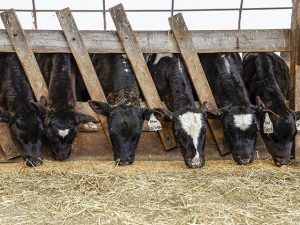
Gevo, based in Colorado, has three manure digesters in Lyon and Sioux Counties. They catch gas from the manure of dairy farms and process it into renewable fuel meant for low-emissions vehicles in California. The gas is refined, compressed into a liquid and transported via an interstate pipeline.
One of the digesters near Rock Valley leaked an estimated 376,000 gallons of manure water when it was filled early this year. That led to a $10,000 fine against a dairy farm owner who hosts the facility.
The other two sites have not leaked, but construction of one of them started before the owner obtained permission from the DNR to build it.
They were “pretty vague in terms of any kind of reasoning why they initiated construction,” said Don Cunningham, an environmental specialist for the DNR who investigated the site.
That led to a $5,000 fine against the dairy site of Meadowvale Dairy of Rock Valley. Work began in June 2021 at the Rock Valley site around the time that a construction permit application was filed with the DNR, according to the department’s records. Four months later the department issued a permit to build the facility.
The site “gained an economic benefit by beginning construction on its schedule rather than waiting for proper approval,” DNR orders said.
Starting construction of the facilities prior to state approval endangers the state’s ability to protect the water quality of public streams, the DNR said.
Correction: A previous version of this story said there were two Gevo sites that started construction without a permit, based on information from the DNR. Gevo only operates one of them.

























